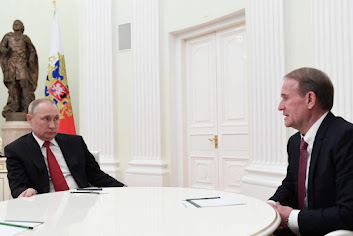Russia signs a decree recognizing independence of Ukraine separatist regions The recognition of Donetsk and Luhansk as "independent...
Russia signs a decree recognizing independence of Ukraine separatist regions
The recognition of Donetsk and Luhansk as "independent" has been met with widespread condemnation from the West amid fears it could provide a pretext for a Russian invasion of Ukraine.
Russian President Vladimir Putin has recognized the independence of two breakaway regions in eastern Ukraine.
He made the announcement in a televised speech to the nation on Monday night.
The Russian leader signed a decree recognizing the self-proclaimed "Donetsk People's Republic" (DPR) and the "Luhansk People's Republic" (LPR) as independent.
It laid out plans for "aid agreements" between Russia and the two separatist territories.
The move has escalated fears among Western nations about a Russian invasion of Ukraine.
Hours after the announcement, Putin instructed the Defense Ministry to send troops into the territories for what the Kremlin called "the function of peacekeeping."
In a long, fiery address, Putin said he was confident the Russian people would support his decision. He also described Ukraine as inextricably linked to Russia's history.
Monday's developments came amid an uptick of violence in the long-running conflict between Ukrainian troops and pro-Russian rebels.
German Chancellor Olaf Scholz and French President Emmanuel Macron have "expressed disappointment" in phone calls with Putin.
US President Joe Biden and Ukrainian President Volodymyr Zelenskyy said they spoke over the phone during Putin's speech.
Zelenskyy wrote on Twitter that they "discussed the events of the last hours" in order to forge a common response.
Biden announced shortly thereafter that he will soon pen an executive order to prohibit "new investment, trade, and financing by US persons to, from, or in" the two breakaway regions.
NATO, Germany, EU condemn Russia
German Chancellor Olaf Scholz warned Moscow against the action, saying it would be "a unilateral breach" of the 2015 peace deal for the conflict in eastern Ukraine.
In a phone call with Putin late Monday, Scholz urged Russia to "immediately deescalate and withdraw the massed forces from the borders to Ukraine."
British Prime Minister Boris Johnson said the recognition was "plainly in breach of international law" and a "flagrant violation of the sovereignty and integrity of Ukraine."
"The UK will continue to do everything we can to stand by the people of Ukraine with a very robust package of sanctions," he told a press conference.
EU foreign policy chief Josep Borrell told reporters in Brussels that the bloc was "ready to react with a strong united front" if Russia recognized the territories.
NATO chief Jens Stoltenberg joined in the international condemnation of the move, saying "this further undermines Ukraine's sovereignty and territorial integrity, erodes efforts towards a resolution of the conflict, and violates the Minsk Agreements, to which Russia is a party," he added.
"Moscow continues to fuel the conflict in eastern Ukraine by providing financial and military support to the separatists. It is also trying to stage a pretext to invade Ukraine once again."
How did it come to this?
The leaders of the self-declared separatist republics of Luhansk and Donetsk released statements earlier on Monday calling on Moscow to recognize them as independent states.
The two regions broke away from Ukraine's control in 2014. However, parts of them remain under control of Ukrainian forces, and sporadic fighting has along a "line of contact" has persisted for years.
Putin told a meeting of his Security Council that he would respond to the rebel republics' request before the end of the day.
Several top Russian officials indicated they would back recognizing them as independent.
Former President Dmitry Medvedev, deputy chairman of the Security Council, said it was "obvious" that Ukraine did not need the two regions.
He added that the majority of Russians would support their independence.
Defense Minister Sergei Shoigu also pushed for recognizing the regions, arguing that Ukraine had a greater "nuclear potential" than Iran or North Korea. Ukraine renounced nuclear weapons after breaking away from the Soviet Union in 1991.






No comments
Note: only a member of this blog may post a comment.